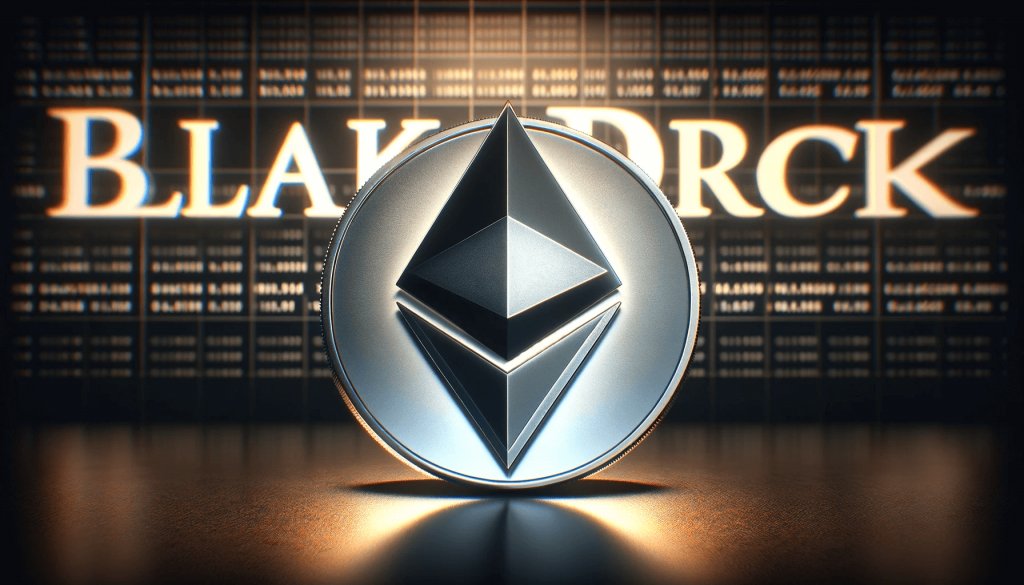The recent achievement of BlackRock’s iShares Ethereum Trust (ETHA) crossing the $1 billion mark in net inflows has sent a powerful message to the crypto community. This milestone establishes ETHA as the first Ethereum-based exchange-traded fund (ETF) in the U.S. to hit such a significant capital inflow. While it may not have soared as quickly as BlackRock’s earlier Bitcoin ETF, this development underlines a growing trend: Ethereum, the world’s second-largest cryptocurrency, is steadily gaining traction among institutional investors.
ETHA may have taken longer to reach $1 billion compared to BlackRock’s iShares Bitcoin Trust (IBIT), which crossed the same mark in just four days, but that doesn’t diminish the importance of this moment. It reflects a shift in the market where more traditional investors are beginning to see the long-term value of Ethereum. Unlike Bitcoin, Ethereum is often viewed as having more diverse utility due to its smart contract functionality and ability to power decentralized applications (dApps). Ethereum’s potential as a key player in the future of decentralized finance (DeFi) is something that investors simply can’t ignore.
On August 20th alone, ETHA recorded a $26.8 million inflow, further contributing to its climb past the $1 billion threshold. This increasing demand for Ethereum-based ETFs indicates that Ethereum is no longer in the shadow of Bitcoin. It’s making its own mark, albeit at a slower pace, but with a foundation that appeals to institutional investors who are looking for more than just store-of-value assets like Bitcoin. Ethereum offers cash flow opportunities through transaction fees for validators, making it somewhat comparable to a tech stock, as it has an active revenue stream that Bitcoin lacks.
However, this rise hasn’t come without challenges. For instance, Grayscale’s Ethereum Trust (ETHE), once a top player in the Ethereum ETF space, has seen withdrawals amounting to approximately $2.5 billion since its conversion into an ETF. The high fees associated with Grayscale’s fund have likely driven some investors to look elsewhere, contributing to ETHA’s success. Grayscale’s outflows have recently slowed, but they still face stiff competition from newer, more appealing options like ETHA.
Despite Grayscale’s struggles, BlackRock’s ETHA ETF has emerged as a frontrunner, now surpassing Grayscale in assets under management. For crypto traders, this is a crucial turning point. Ethereum, often overshadowed by Bitcoin, is proving itself as a valuable and reliable asset. The ETF’s steady rise represents not only increased confidence in Ethereum but also highlights the diversification happening within the crypto investment space.
Traders and investors should take note: Ethereum’s potential as an investment vehicle is being validated in real-time by the inflows into ETHA. It’s not just about Bitcoin anymore—Ethereum is here to stay and could be a cornerstone in any well-rounded crypto portfolio. With Ethereum’s capabilities in powering smart contracts, DeFi applications, and more, this $1 billion milestone is likely just the beginning of greater institutional adoption.
As more investment products like Ethereum ETFs come to market, the choices for both retail and institutional investors are expanding. This milestone for ETHA is another signal that the crypto market is maturing and evolving. Investors who have been hesitant about Ethereum now have tangible proof that the asset is being embraced by some of the largest names in finance, like BlackRock.
So, what does this mean for the future? Ethereum’s growing popularity among institutional investors, coupled with the steady rise in ETF inflows, is a strong indicator that Ethereum is becoming more than just an alternative to Bitcoin. It’s emerging as a central player in the crypto space, with use cases that appeal to investors seeking more than just speculative assets. For traders, this could be a pivotal moment—one where Ethereum starts to define its own path in the investment world, one that’s grounded in its utility and innovation.



